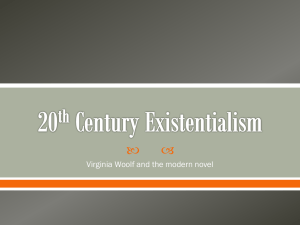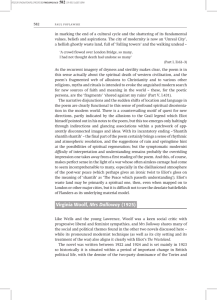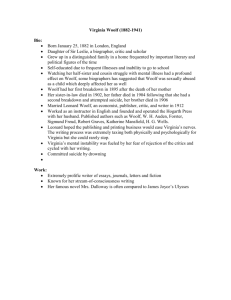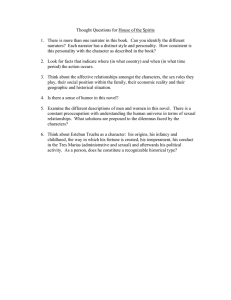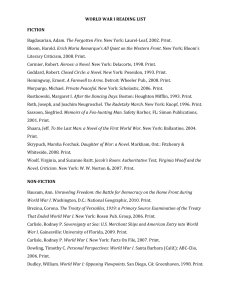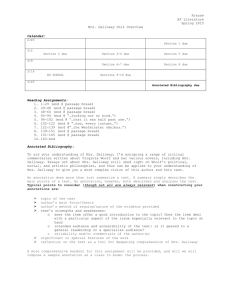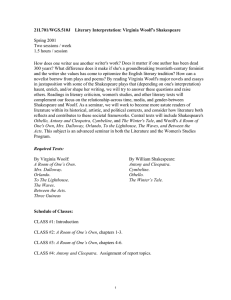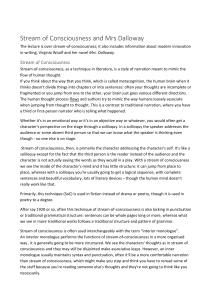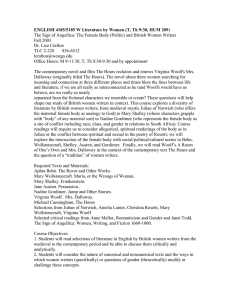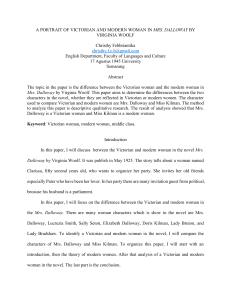Mrs. Dalloway
advertisement
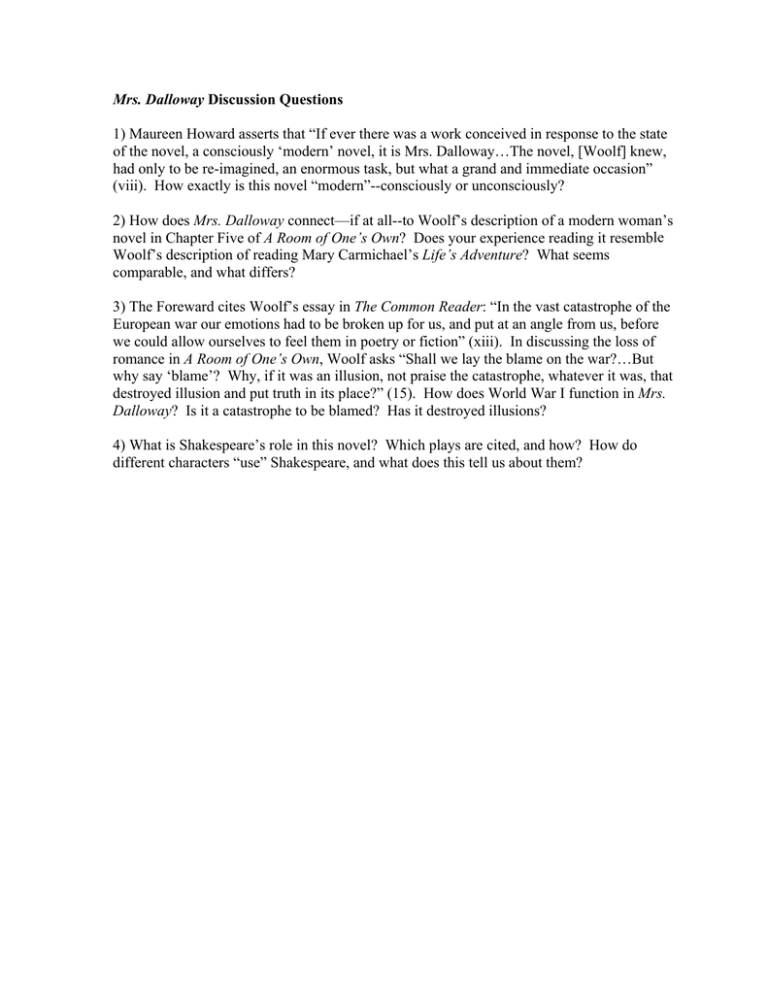
Mrs. Dalloway Discussion Questions 1) Maureen Howard asserts that “If ever there was a work conceived in response to the state of the novel, a consciously ‘modern’ novel, it is Mrs. Dalloway…The novel, [Woolf] knew, had only to be re-imagined, an enormous task, but what a grand and immediate occasion” (viii). How exactly is this novel “modern”--consciously or unconsciously? 2) How does Mrs. Dalloway connect—if at all--to Woolf’s description of a modern woman’s novel in Chapter Five of A Room of One’s Own? Does your experience reading it resemble Woolf’s description of reading Mary Carmichael’s Life’s Adventure? What seems comparable, and what differs? 3) The Foreward cites Woolf’s essay in The Common Reader: “In the vast catastrophe of the European war our emotions had to be broken up for us, and put at an angle from us, before we could allow ourselves to feel them in poetry or fiction” (xiii). In discussing the loss of romance in A Room of One’s Own, Woolf asks “Shall we lay the blame on the war?…But why say ‘blame’? Why, if it was an illusion, not praise the catastrophe, whatever it was, that destroyed illusion and put truth in its place?” (15). How does World War I function in Mrs. Dalloway? Is it a catastrophe to be blamed? Has it destroyed illusions? 4) What is Shakespeare’s role in this novel? Which plays are cited, and how? How do different characters “use” Shakespeare, and what does this tell us about them? MIT OpenCourseWare http://ocw.mit.edu 21L.701 / WGS.510J Literary Interpretation: Virginia Woolf's Shakespeare Spring 2001 For information about citing these materials or our Terms of Use, visit: http://ocw.mit.edu/terms.
